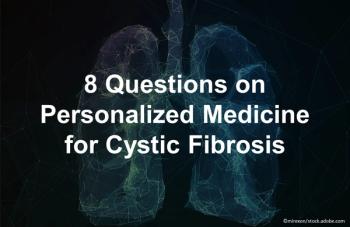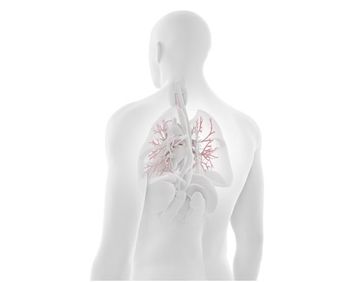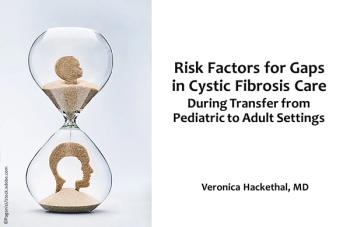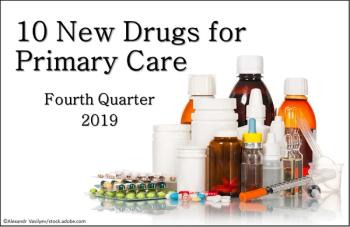
Improving CF Medication Adherence: A Specialty Pharmacy at Work
Cystic fibrosis medication adherence rates at Fairview Health Services in Minneapolis are 70% higher than at retail pharmacies. Patient Care found out why. Interview, here.
SPOTLIGHT ON FAIRVIEW HEALTH SERVICES Part I
According to the latest guidelines for cystic fibrosis (CF) published in U.S. Pharmacist, pharmacists are an important part of counseling patients with CF.
Patient Care (PC) recently spoke with Sandy ILL, PharmD, CSP, a specialty pharmacist; Kim Ehlert, PharmD, a clinical pharmacist; and Tim Affeldt, PharmD, vice president of specialty pharmacy at Fairview Health Services, a nonprofit, integrated health system based in Minneapolis, Minn, to discuss how they address CF medication adherence in their health system.
PC: The Fairview CF medication adherence rate is
Sandy ILL, PharmD, CSP: I believe that with Fairview Specialty Pharmacy, we've done a really great job of educating our staff on cystic fibrosis and the complex regimen that these patients are on, so when a patient calls in, we recognize the intricacy of their disease and can offer a higher level of service. Education of the team is absolutely essential. We have a monthly meeting where both clinic and specialty pharmacy staff proactively discuss and collaborate on processes and procedures that span our health system. To continue our coordination of care, throughout the month we have open communication between the clinic and specialty pharmacy staff as to how we can work together in supporting our patients and addressing any specific problems or concerns a patient might be having at that time.
We also have a program that specifically trains patient liaisons in CF who check in with patients on a monthly basis and so really establish relationships with patients.
"We also have a program that specifically trains patient liaisons in CF who check in with patients on a monthly basis and so really establish relationships with patients."
Dr ILL: Also, we utilize different types of technology to be able to reach a patient with the communication route that is best for them, whether that's a phone call or a text message or an email. For example, cystic fibrosis patients might prefer text messaging or emailing while they're doing their inhaled nebulization. They of course want to be available to do a phone call, to set up the next refill, but during a nebulization treatment, it’s more convenient to be able to send a text message or respond to an email. Again, it's really figuring out for each individual what works best for them, and how we can best help support them.
PC: Can you go into more detail about what the process is at Fairview? A patient comes into your health system, what is the first step? Who interacts with them? As they go through care, what different teams do they end up touching, and what are the roles of those folks in patient care?
Kim Ehlert, PharmD: I think we have an ideal setup in our health system. We have pharmacists in the care center and in the specialty pharmacy and they are partners so we can provide consistent care across all of those touchpoints within the system. When a CF patient comes to our clinic, they will meet with their providers and the care team, which includes the pharmacist in the clinic. Then, if they need a prescription or are starting on a new therapy, it is ideal if they can fill it in our health system.
When the prescription goes to the pharmacy, the staff has access to the patient's electronic medical records, so they can see the notes from the visit; they can see what the pharmacist specifically talked about with the patient and can reinforce that message when they have contact with the patient. We can also help communicate to the care team what we learn about patient preferences and any specific concerns that we have or the patient has.
Next:
PC: The specialty pharmacist seems to be a role where you have a chance to run interference for the rest of the team, and if you intercept any problems, you bring them back.
Dr Ehlert: So, yes, the communication works both ways. Typically, CF patients are seen in clinic every 3 months. In between visits, though, the pharmacy is reaching out to them on at least a monthly basis to check in to see if they need to order medications and find out how things are going. So, the pharmacy can really help bridge that gap between clinical encounters. If issues arise they can let us know right away and we can intervene, rather than waiting 3 months for the patient to come back and then find out they're having some problems.
"So, the pharmacy can really help bridge that gap between clinical encounters."
Dr ILL: I would say that we are an extension of the entire care team. As a specialty pharmacist within the specialty pharmacy itself, it's my job to help continue support for patients while they’re at home, following their routine; I can address immediate needs and report concerns or issues back to the clinic as appropriate. Once again, we want to ensure the continuum of care from the clinic on a monthly basis to the patient in their own home.
Dr Ehlert: Because of the education and training that the pharmacy staff has been provided about cystic fibrosis, they are able to handle many issues a patient may raise-such as talking about medication adherence or how to manage side effects Then, if it is something that needs to be escalated, the line of communication is open to the care team at the clinic.
Next:
PC: Say there is someone in another health system who wants to improve medication adherence for their CF patients. They want to make a change. They see a system like yours and think it's a good idea. How can they get started?
Dr Ehlert: I think if there is the ability to have the pharmacist in the clinic, it's really helpful. That's the role that I play at our center, and it is particularly important with the adherence piece, because CF care depends on an entire team of nurses, doctors, social workers, dietitians, and respiratory therapists. When I started in the clinic, the one piece that I felt was missing was that focus on adherence.
"... CF care depends on an entire team of nurses, doctors, social workers, dietitians, and respiratory therapists."
I think a lot of the care team was aware that it's an issue and a concern in this patient population, but nobody was able to focus on that and take a deep dive into it. I think having a team member dedicated to focusing on treatment adherence is very helpful if it's feasible for a health system.
If it’s not possible to have one team member responsible for that task, then it is even more essential that everyone on the care team have a thorough understanding of the disease state and of the complexity of treatment; an understanding that when you’re addressing medication adherence with CF patients, there is no one-size-fits-all approach that works. It's hard work. And, it takes a lot of time to establish relationships. You have to have a level of trust before patients are comfortable talking about why they aren't taking their medications as prescribed. Then, for each individual you have to recognize what their barriers are and then how you can work together to overcome them.
Dr Ehlert: I think another thing that's unique and a challenge about cystic fibrosis is that it is a lifelong disease. Most people now are diagnosed at birth, so you see infants all the way up through people in their 40s and 50s, and hopefully beyond. The treatment adherence issues change over time as life progresses. Being able to meet people where they are on the age spectrum, too, is important.
Dr ILL: I would second that – staff education and taking the time to create those relationships is important because until we know what, for that specific person, may be a barrier to adherence, we're not able to suggest interventions. We can give them all the ideas in the world, but we can’t help them get to their goals until they are able to tell us what is in the way for them. Then we can have the conversation.
I think health systems such as Fairview have a really wonderful opportunity to provide patients the full continuum of care by combining our individual professional strengths.
Next:
PC: You mentioned educational initiatives. What type of education and training do you offer your teams?
Dr ILL: Within the Fairview specialty pharmacy, each month, we go over all of the disease states that we cover for our all of our specialty patients. So of course, all that information, including on cystic fibrosis, is kept up to date.
We also have monthly “touch bases” with other parts of the patient care team. For example, we have a therapy management program, which I'm a part of, which specializes in cystic fibrosis. We meet on a monthly basis with the pharmacy staff in the clinic. The intent of the program is to improve compliance with CF therapy by providing coordinated care, empowering patients with the knowledge about CF and their medications. We focus in on adherence, quality of life, and side effect management. We meet on a monthly basis.
Also, our specialty pharmacy CF therapy management clinicians have a monthly meeting with our CF specialty pharmacists- so all of us are on the same page in terms of anything coming down the pipeline. What questions, concerns are patients bringing up? What kinds of trends are we seeing? So once again, we’re all about having those regular touch points to make sure that we're all on the same page.
For onboarding new team members- any technician, liaison, or a clinical pharmacist-they go through all specialty disease state trainings with our clinical staff.
PC: It seems like staying in contact with one another, regularly communicating, is the key there.
Dr ILL: Absolutely.
Please click here for Part II of our interview with Fairview Specialty Pharmacy.
Newsletter
Enhance your clinical practice with the Patient Care newsletter, offering the latest evidence-based guidelines, diagnostic insights, and treatment strategies for primary care physicians.



































































































































